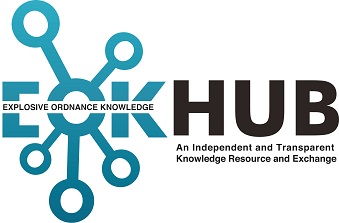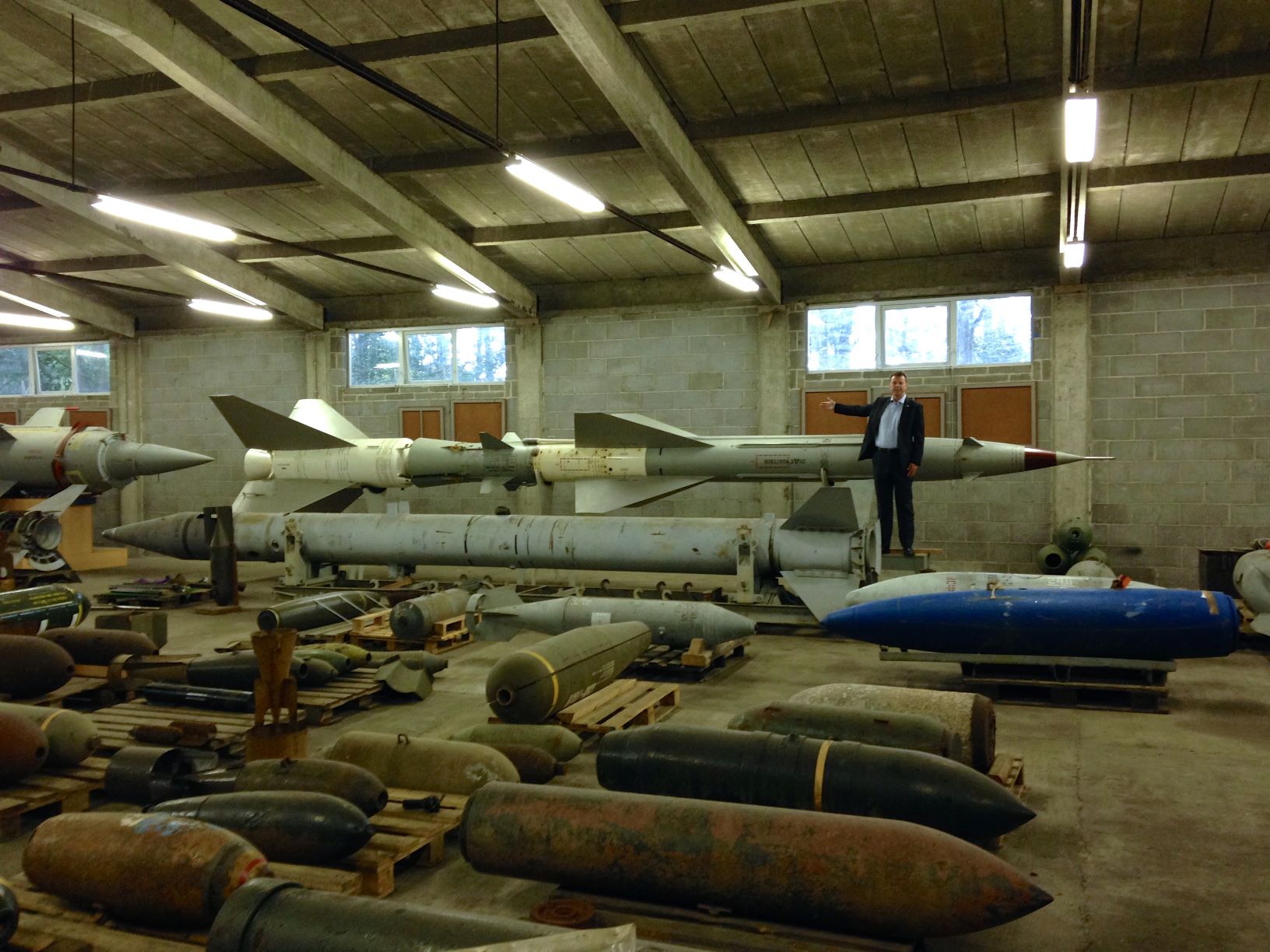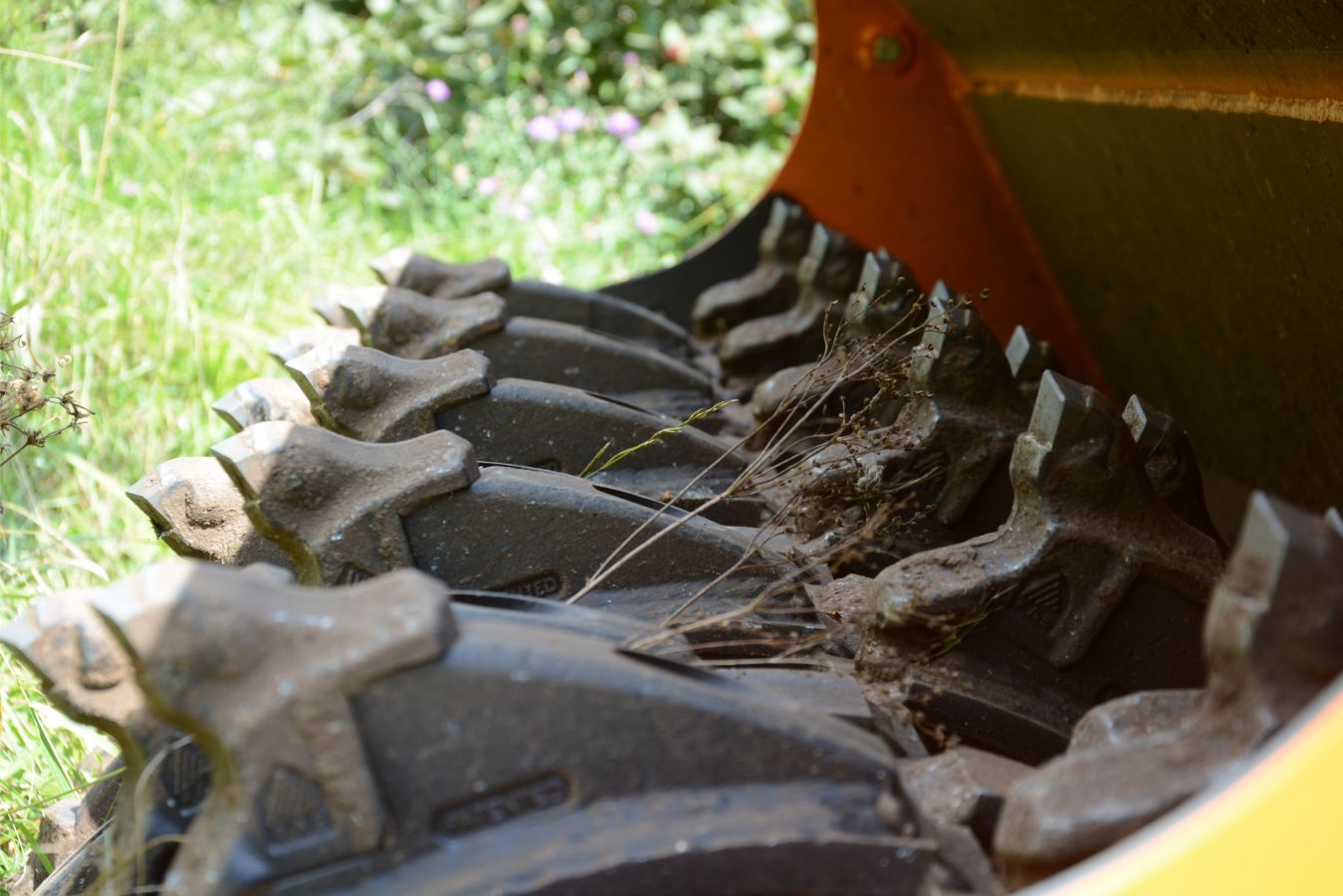INTERVIEW: SAMUEL PAUNILA FIExpE, HEAD, AMAT
by David Gertiser
Samuel Paunila is the head of Ammunition Management Advisory Team (AMAT) – a group of Geneva-based professionals within the Geneva International Centre for Humanitarian Demining (GICHD) working in collaboration with the United Nations Office of Disarmament Affairs (UNODA). The team works to assist States “improve the safety and security of conventional ammunition thus contributing to the reduction of the risks of accidental explosions and diversion from stockpiles.” I met with Samuel in Geneva to learn more about this new team at the GICHD.
EOK HUB: AMAT has only recently been formed at the GICHD, and works closely with states and United Nations. Can you tell us about how the GICHD and UNODA came up with the idea of AMAT?
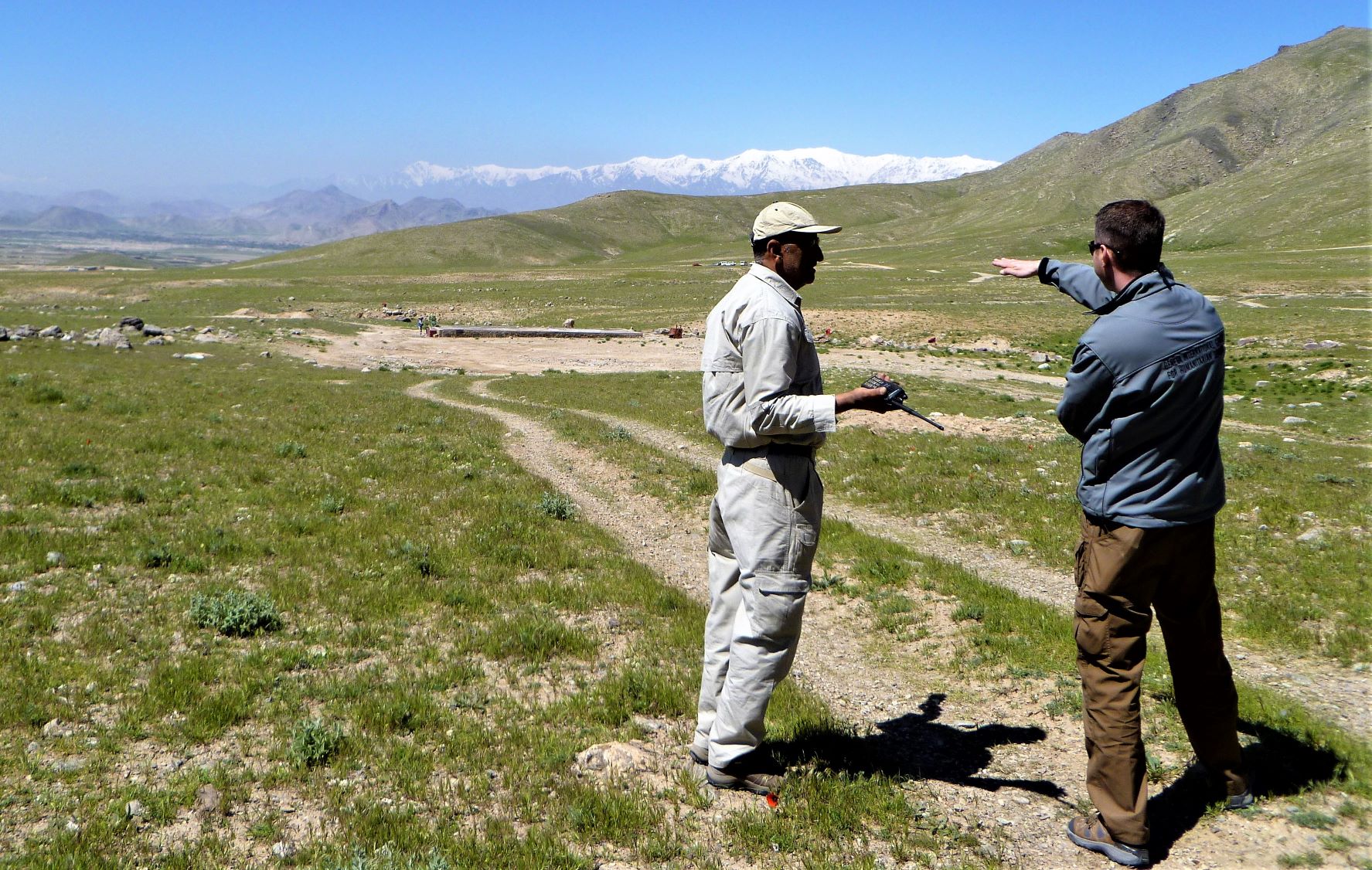
Photo 1:Afghanistan 2016, GICHD
SP: You are right, AMAT exists today as a result of successful cooperation between the GICHD and UNODA. But ammunition is not something new: for seven years, the GICHD has been engaged in conventional ammunition management, primarily developing tools and methods to address ammunition safety risks, and on the security side, too. Most countries around the world put focus on the security of their stockpiles, as they should. Ammunition safety is important to those countries also, but not something many will be ready to significantly invest at home, or to finance other countries become better at.
The past decades have seen the international community waking up to the significant safety and security challenges presented by conventional ammunition. There is increasing evidence of incidents of ammunition diverting from a legitimate end-user state to third parties. These unauthorised re-transfers are extremely concerning and quite wild in some regions, how even large stocks of ammunition disappear from everybody’s radar. Meanwhile, Geneva-based Small Arms Survey reports more than 600 unplanned explosions at munitions sites in the past decades, involving more than 100 states. The phenomena of diversion and explosions continue to occur around the world because ammunition risks are not properly understood and acted upon. The management and trade of ammunition is not adequately regulated or monitored.
In two decades, the GICHD has developed top expertise in the policies and practices applied to work with landmines and technical standards regulating the mine action sector. The specialists fly out of Geneva to help countries develop comprehensive and competent strategies and standards for managing the contamination and getting rid of mines and, for example, cluster munitions in their territories. Alongside landmines, the Centre has over the years extended scope to encompass risks from other explosive remnants of war, namely unexploded and abandoned explosive ordnance. It is only natural continuation to include conventional ammunition in all its categories, from the initial manufacture to the final disposal.
Within the United Nations, their Office of Disarmament Affairs is the agency mandated with ammunition. Operating from New York, the UNODA administers UN-wide knowledge platform called UN SaferGuard Programme which is also the home for the International Ammunition Technical Guidelines, the IATG. The IATG has a technical review board comprising a group of states, and a strategic coordination group with international organisations and specialised NGOs carrying out practical work and academic research on ammunition around the world. The GICHD continues to provide the venue in Geneva for the technical review board and helps the SaferGuard programme operationalise the IATG but also to maintain a roster of IATG experts, whom we have been proud to coach.
In this setting, once the all-critical donor support from Switzerland and Germany was agreed in late 2018, the joint initiative of the GICHD and UNODA turned to reality with AMAT being established within the GICHD, in a field distinct from mine action. AMAT is not meant to blow up things on the ground or re-organise ammunition warehouses on behalf of a state. Instead, we promote the IATG and reduce risks from ammunition through advice and services to states in the upstream, on their request. We promote the hard work of our partner organisations who develop local competences and instill culture of safety and security, further disseminating the good practice in ammunition management.
EOK HUB: You were born in Finland, and served in the military specializing in explosive ordnance disposal. How was your training and service, and what prompted you to move into the humanitarian sector?
SP: Finland, Finland… I was trained as an ammunition and weapons systems technical officer in Finnish Defence Force. Soon after graduating I commenced automation engineering studies while working full-time in the military, responsible for an ammunition depot and, as you say, practicing and training EOD a lot. It was a bit crazy to do all that simultaneously, commuting on Fridays to another town just to spend the weekend studying in a laboratory. Few years passed including a long EOD mission in the Balkans. Thereafter, with some hands-on experience and an engineering degree in pocket, I recall feeling confident to try something else. It was quite selfish, actually: I wanted to travel the world and not train others for the rest of my life. I went to farewell parties of retiring sergeant-majors and colonels who had no idea what to do next in life. When it was time to bid farewell toasts, some were in tears. To them the military was all the family they felt they ever had, besides a cottage by a nearby lake, of course. As a young lieutenant, this made quite an impression on me. Would I be the same after 25 years? I decided against waiting and seeing and after an honorable discharge from the military, went to work with Danish Demining Group, a humanitarian NGO and part of Danish Refugee Council. It was great to plan and execute demining and EOD operations and build field organisations, helping to make conflict-ridden countries a little bit safer, while learning much more about people and cultures, and ammunition! After a decade in Asia and Africa, I was now married and with a kid, and started at the GICHD. It felt right to move from pure humanitarian EOD – landmine and UXO clearance work – to the GICHD, which is an enabler of the broader mine action sector and an advisor to national authorities, also providing secretariat function to the International Mine Action Standards, the IMAS.
EOK HUB: AMAT is a respected advocate for proper munitions storage and safety norms, standards, and best practice. How did you manage to develop this recognition?
SP: I don’t accept that question, David. We are not recognised, not yet and respect must be earned. Some states and organisations are now finding AMAT for its knowledge in the safe, secure and effective ammunition management. We hope to be the go-to place in the future for many more. In this vein, an ammunition management activity platform is being established at the GICHD. It will provide a global picture of the states and organisations developing capabilities of others in ammunition management. This state-of-play analysis will show who is doing what, where, and to what effect and applicable standard, in conventional ammunition. The way you described us, that is certainly an aspiration, but let us not get ahead of the game. We will work hard to earn respect and are not there yet.
EOK HUB: Where (geographically) are most of your efforts currently centered? How are you working to drive improved coherence in international assistance in these areas?
SP: AMAT does not set priority countries or regions, or for example rate safety over security. And yet there are realities on the ground which stipulate that we are active in Africa, Americas, Asia and Europe. We work with regional organisations, such as African Union, Organization of American States, North Atlantic Treaty Organization, Organization for Security and Cooperation in Europe, and of course UNODA’s regional centres in Peru, Nepal and Togo. Our efforts are not centered in a geographic location but rather extended between competent partners and to regional powerhouses. On the safety side, a massive explosion involving ammunition reported in one country does not imply its stockpile management being worse off, or that it would need more assistance than its neighboring country with no reported explosion. But repeated explosions in one country implies a pattern. Similarly in the security domain, there are countries doing their best to enhance the stockpile security with the little resources they have, but even when their own ammunition is secured and at check, the country may still be used to pass-through illicit ammunition to another country. AMAT works therefore with and through its partners wherever they globally operate, and responds to requests for assistance from states and partners, promoting the good practice standards including the guidance found in the IATG.
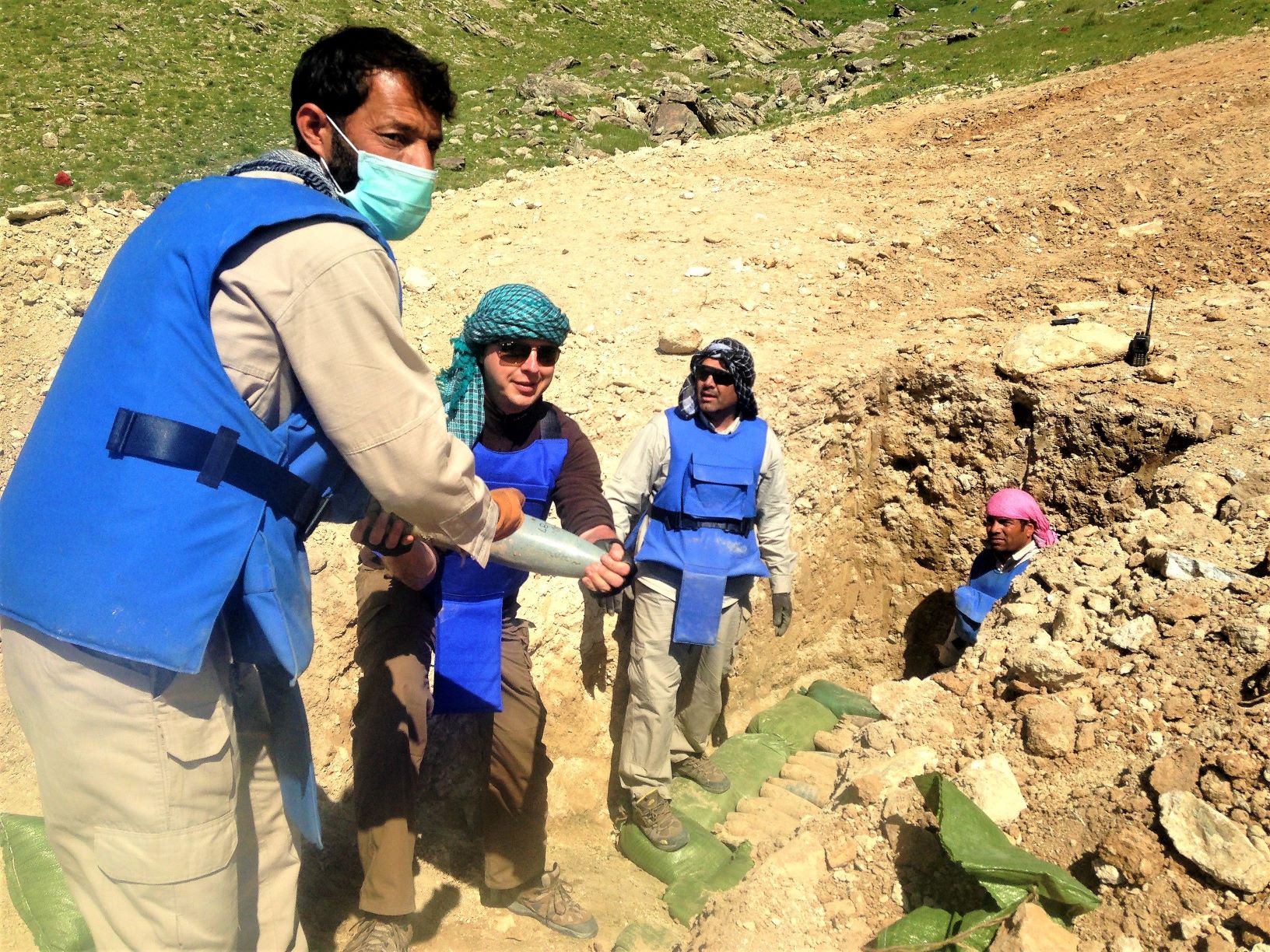
Photo 2:Afghanistan 2016, GICHD
EOK HUB: AMAT includes “Team” in the name. Tell us a little about more about your team members.
SP: We are a mixture of technical, policy and programming specialists. Technical advisors come with an ammunition technician or officer background with significant expertise in sorting out stockpiles in multiple countries and environments. They generally have previously worked in armed forces as well as in a commercial company or a specialised NGO. Then there are policy and programming specialists who come with an academic research or programme management background with a comprehensive insight to the sector and the big picture. They understand how regional programmes and international mechanisms work and are managed, what conventions and agreements govern which parts of the community of practice. There is PhD and lawyer in the team and all members possess a broad personal network of contacts. I think we have a good team which is enabled by the GICHD’s other teams specialised in strategies and standards, external relations and policy, gender and diversity, communications, and so forth. Worth a mention is the GICHD’s advanced knowledge in information management and geographic information systems (GIS): this expertise has proven invaluable in developing the ammunition management activity platform.
EOK HUB: Your work requires you to travel frequently. When you are home, how to you prefer to relax?
I like cooking and outdoors – any sport involving snow, and tennis when there is none. And parties. And B action movies.
